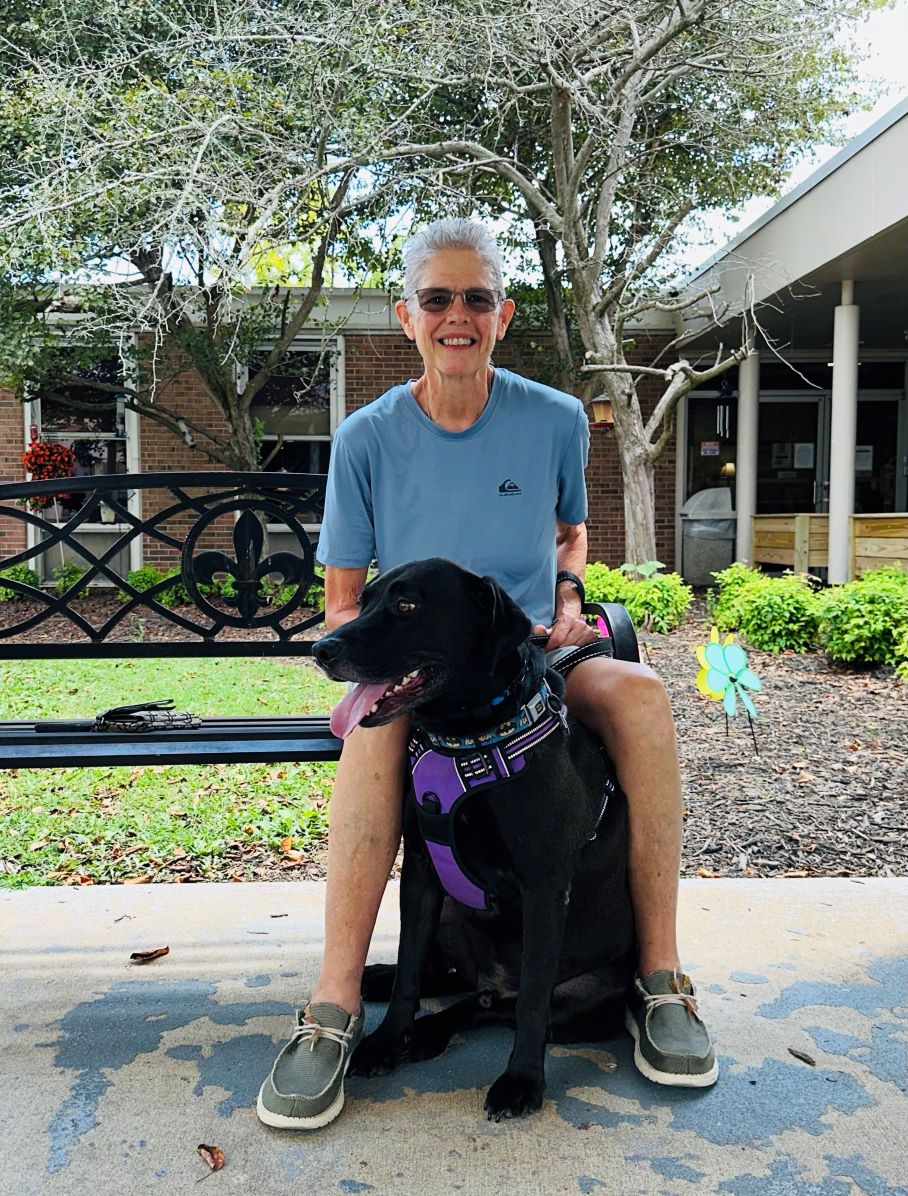Patient Story: Robotic-assisted surgery changed Kelly's life
August 15, 2025
When Kelly Michaud went in for a routine colonoscopy on February 23, 2024, she never imagined it would lead to a life-changing diagnosis. After meeting with Nicholas Ballay, MD, to review her results, she learned she had rectal cancer.
“It was a shock,” Kelly recalls. “Cancer doesn’t run in my family, so I didn’t know what to expect.”
She was referred to Daryl Pierce, MD, who helped her navigate the unfamiliar world of oncology. “Dr. Pierce is incredibly smart, but he explains things in a way that makes sense. He walked me through everything.”
Kelly underwent seven rounds of chemotherapy and 29 rounds of radiation, finishing treatment in December 2024. “It was rough. I lost 30 pounds and felt sick most days. I couldn’t do the things I loved—like cooking or even going to the grocery store.”
Returning to work in March 2025 proved too soon. “I struggled through March, April, and May. I was over cancer and feeling awful. I was ready to try something else.” That’s when she revisited Dr. Ballay to discuss surgical options. Initially, the idea of a full removal of her anus was overwhelming. “It freaked me out,” Kelly admits. But after consulting with Dr. Ballay, Dr. Pierce and her family, a less invasive option was proposed—a sigmoid colectomy, or colon resection.
On June 3, 2025, Kelly underwent robotic-assisted surgery at Starr Regional Medical Center using the Da Vinci Surgical System. “Dr. Ballay and Dr. Pierce were both in the OR with me. They counted down with me before I went under. When I woke up and realized I didn’t have a colostomy bag, I knew it was going to be OK.”
Thanks to the minimally invasive nature of robotic-assisted surgery, Kelly’s recovery was remarkably fast. “I felt great afterward. I was able to return to work soon after surgery, my digestive issues improved, and I finally started gaining weight again. If robotic-assisted surgery is an option, I highly recommend it. It truly turned my life around.”
“Robotic surgery can be a game changer in situations such as Kelly’s. It allows surgeons to perform the same type of procedure as traditional open surgery, but with less risk of infection, smaller incisions, fewer nights in the hospital and a shorter recovery time,” said Dr. Ballay. “I’m thankful for the opportunity to provide robotic surgery and other minimally invasive techniques as options, close to home, for my patients. It greatly impacts their surgical experience and recovery in a positive way.”
Throughout her journey, Kelly leaned on a strong support system. Her girlfriend Kathleen was her rock—encouraging her to move, helping her through the worst days, and celebrating every small victory. Her sisters checked in constantly, making sure she had everything she needed. Even her dog Bailey never left her side.
“The chemo ladies were spectacular, especially Ashley. We laughed like kids—it made chemo bearable. And when I stayed overnight after surgery, the hospital staff was phenomenal. Dawn, the night-shift nurse, kept me entertained and helped me feel at ease. Humor, for me, breaks through everything. It’s like they knew that’s what I needed to get through this.”
Reflecting on her experience, Kelly says, “It was a long, dark journey, but I was truly blessed all along the way. Robotic-assisted surgery gave me my life back.”
